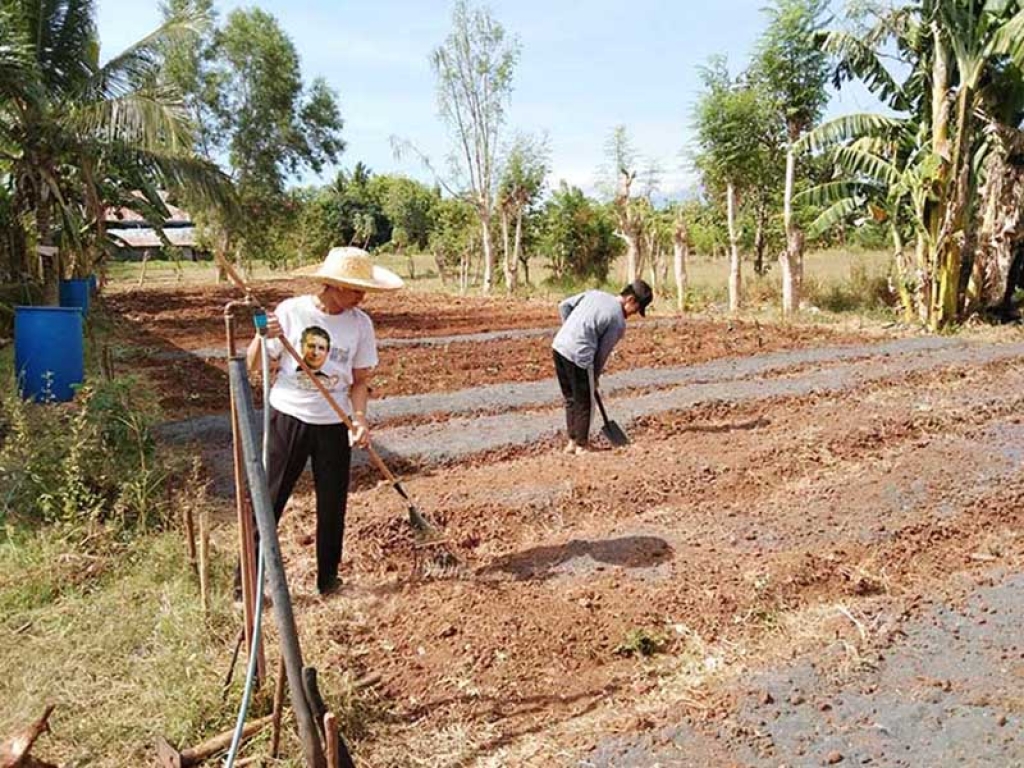PHILIPPINES: Don Bosco Center Mati launches new farming initiative in response to COVID-19 pandemic

(MissionNewswire) The Don Bosco Center in Mati, the capital city of the province of East Davao, located on the southeastern side of the island of Mindanao, Philippines, has started an agricultural project to deal with the quarantine period due to the COVID-19 pandemic.
Under the guidance of Father Rex Carbilledo, the director of the vocational-technical training center, the soil was prepared for cultivation and the first vegetables planted. Salesians are planting eggplants, okra, lettuce, sweet potatoes, cassava, onions, ginger and sweet corn. In a month or so, some of the vegetables will be ready for harvest. The goal is to provide organic and affordable vegetables to the local population and neighboring communities and to teach them cultivation and farming techniques.
Don Bosco Mati was entrusted to the Salesians in 1998 and over the years has established itself as a resource for the community which is made up of mostly poor and marginalized families. The Don Bosco Training Center in Mati has served more than 2,000 youth since its launch in 1992. Graduates are hired by some of the biggest industries and companies in the country.
“Providing an opportunity to cultivate the land during this time is important for ensuring that local populations have a source of food and are learning the farming techniques to help make their farms more productive,” said Father Gus Baek, director of Salesian Missions, the U.S. development arm of the Salesians of Don Bosco. “Missionaries provide education and workforce development paired with other social services to help poor youth break the cycle of poverty and have hope for the future.”
Salesian agriculture programs in the Philippines and countries around the globe provide farmers with basic education, as well as advanced studies in the latest agricultural practices and modern technologies. Salesian missionaries also hope agriculture programs will entice more local youth to choose agriculture as their long-term livelihood. With a long history of providing agricultural education, missionaries currently operate more than 90 agriculture schools around the world.
More than one-quarter of the population of the Philippines lives in poverty, according to UNICEF. Poverty is most severe and widespread in rural areas where 80 percent of the population—close to 88 million people—make their home. The poorest Filipinos are indigenous populations, small-scale farmers who cultivate land received through agrarian reform, landless workers and fishermen. In addition, poverty rates are higher for women than men.
Illiteracy and high levels of unemployment contribute to the elevated poverty rate. With more than 11 million out-of-school youth in the country and dropout rates doubling as children reach secondary school, access to education becomes a critical step in breaking the cycle of poverty. Throughout the Philippines, Salesian missionaries offer a variety of educational and social development programs for youth, many with an emphasis on recreation and sports activities. The goal is to provide the opportunities necessary to gain an education and skills training to break the cycle of poverty and retain long-term employment.
###
Sources:
ANS Photo (usage permissions and guidelines must be requested from ANS)
ANS – Philippines – Agricultural project of Salesian community of Mati
Salesian Missions – Philippines
UNICEF – Philippines





